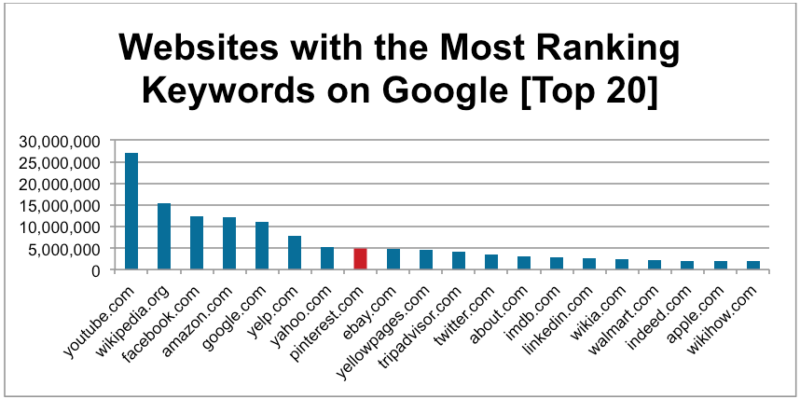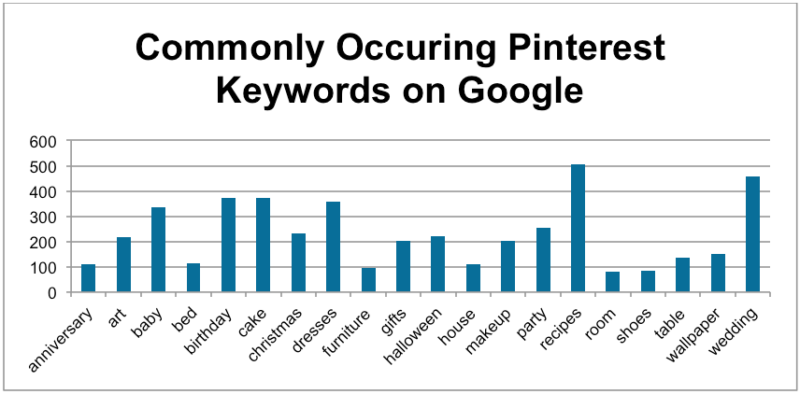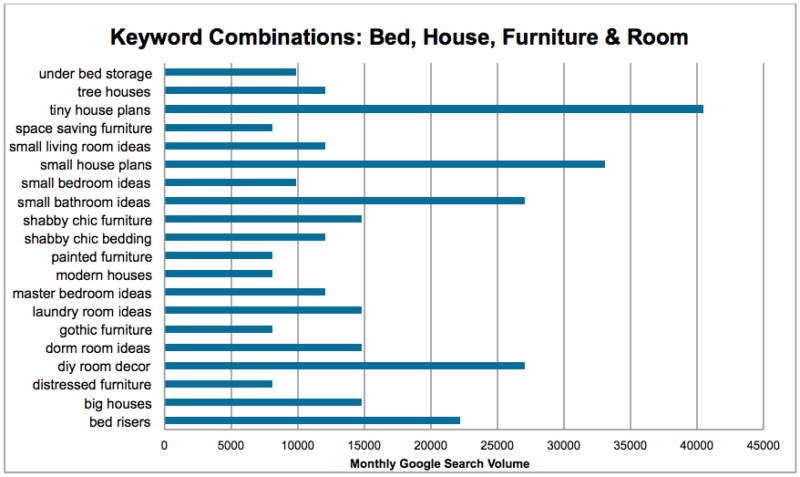Using Google To Inform Pinterest Keyword Research Strategies
Incorporating Pinterest into your online marketing strategy is good -- getting that content to rank in Google search is better. Columnist Thomas Stern explains how to increase the search visibility of your Pinterest content.

In mid-2014, Pinterest introduced Guided Search, a feature that greatly expanded the information available to marketers by providing insight to popular keyword phrases for boards and Pins. Unfortunately, this feature requires inputting keywords on a per-board or per-Pin basis, which can be incredibly time-consuming for most marketers.
In early 2015, our team received access to the Pinterest advertising beta program. This granted our team further insight into keyword targeting opportunities around our clients’ products. While this was a great step toward ensuring visibility on the platform, the targeting and keyword insights were considerably limited, undoubtedly something that Pinterest is working to improve.
We decided to take matters into our own hands. After all, we’ve seen tremendous performance with Pinterest when utilized correctly for clients. Similar performance has also been validated by numerous case studies, most recently by Marketing Sherpa earlier this year.
Google + Pinterest = ❤
After Pinterest took off in popularity a few years ago, our SEO team noticed more and more page-one Google results that included Pinterest. Most recently, we’ve come across indexed boards and Pins in image results, along with a unique mobile result that displays multiple Pin images underneath a link to the board.
Clearly, Google considers Pinterest content to be authoritative, so we decided to see exactly how Pinterest compares to other websites in terms of unique number of keyword rankings on page one.
Using SEMRush’s extensive database of organic listings, we see that Pinterest ranks #8 among all websites for number of keywords ranking in Google’s top 20 results — just ahead of eBay, Yellow Pages and TripAdvisor. With nearly five million ranked keywords to evaluate, we’ve put together a method to identify the commonalities between keywords and categories.
Step 1: Identify Commonly Occurring Keywords
Considering the sheer volume of keywords, an initial filtering process is required to make sense of the data. We felt that it was easiest to identify the most commonly occurring keywords to create initial groupings. The following example includes the most frequently occurring keywords with adjectives and pronouns omitted (cool, cheap, her, him, etc.).
Step 2: Build & Prioritize Keyword Phrases
Outside of branded search, Pinterest results on Google are primarily long-tail, descriptive phrases. To help identify these phrases, an additional round of keyword insight is needed. The following example takes the “home & home furnishings” keywords from step one and aligns them with the most searched pairings that Pinterest ranks for on Google.
When reviewing these combinations, it’s immediately clear that a theme exists across the reviewed home and furniture category: Pinterest users are interested in smaller homes and furniture that accommodates a smaller space.
Putting this into a marketing context, brands like West Elm, Ikea and CB2 could greatly benefit from creating Pinterest boards around space-saving furniture offerings. All three brands reference small spaces on a dedicated Pinterest board, but none seem to quite capture the varied intent (room type, furniture type) of Pinterest searchers.
Step 3: Optimize With Pinterest Ranking Factors In Mind
While researching ways to utilize Google data to inform Pinterest keyword strategies, we identified some slight differences between boards and Pins that rank at the top of each search engine (Pinterest vs. Google). On Google specifically, it seemed that boards and Pins with a high degree of interaction (repins) were favored. On Pinterest, it’s a bit more difficult to pin down in entirety (no pun intended), but Google’s ranking factors in addition to others are certainly in place. Regardless of search engine, it’s important to keep the following optimization principles in mind:
- Conduct Keyword Research. As is evident in the aforementioned furniture example, there is an abundance of keyword combinations that can help brands align with how users search.
- Be Descriptive. Authentic and utilitarian content must coincide with keyword strategies. On Pinterest, this means creating boards that are common in theme but also provide enough specificity to align with users’ needs (e.g., “Small Living Room Ideas” or “Small Space Living”). It also means Pins should have well-written descriptions that thoroughly describe what the image is about.
- Use Markup. One of the simplest ways to ensure the content from your website and/or blog is optimized for Pinterest is to use Rich Pins in conjunction with the appropriate markup (different types of markup are supported for recipes, movies, articles, products or places). We highly recommend identifying which relevant content types are on your website and implementing markup ASAP.
- Be Active. Just like Facebook, the level of engagement of content on Pinterest helps algorithms on the platform determine which boards and pins should rank. Brands often overlook the fact that pinning other users’ and websites’ content is common practice on the platform, and brands can be rewarded for participating.
Contributing authors are invited to create content for Search Engine Land and are chosen for their expertise and contribution to the search community. Our contributors work under the oversight of the editorial staff and contributions are checked for quality and relevance to our readers. The opinions they express are their own.
Related stories
New on Search Engine Land



